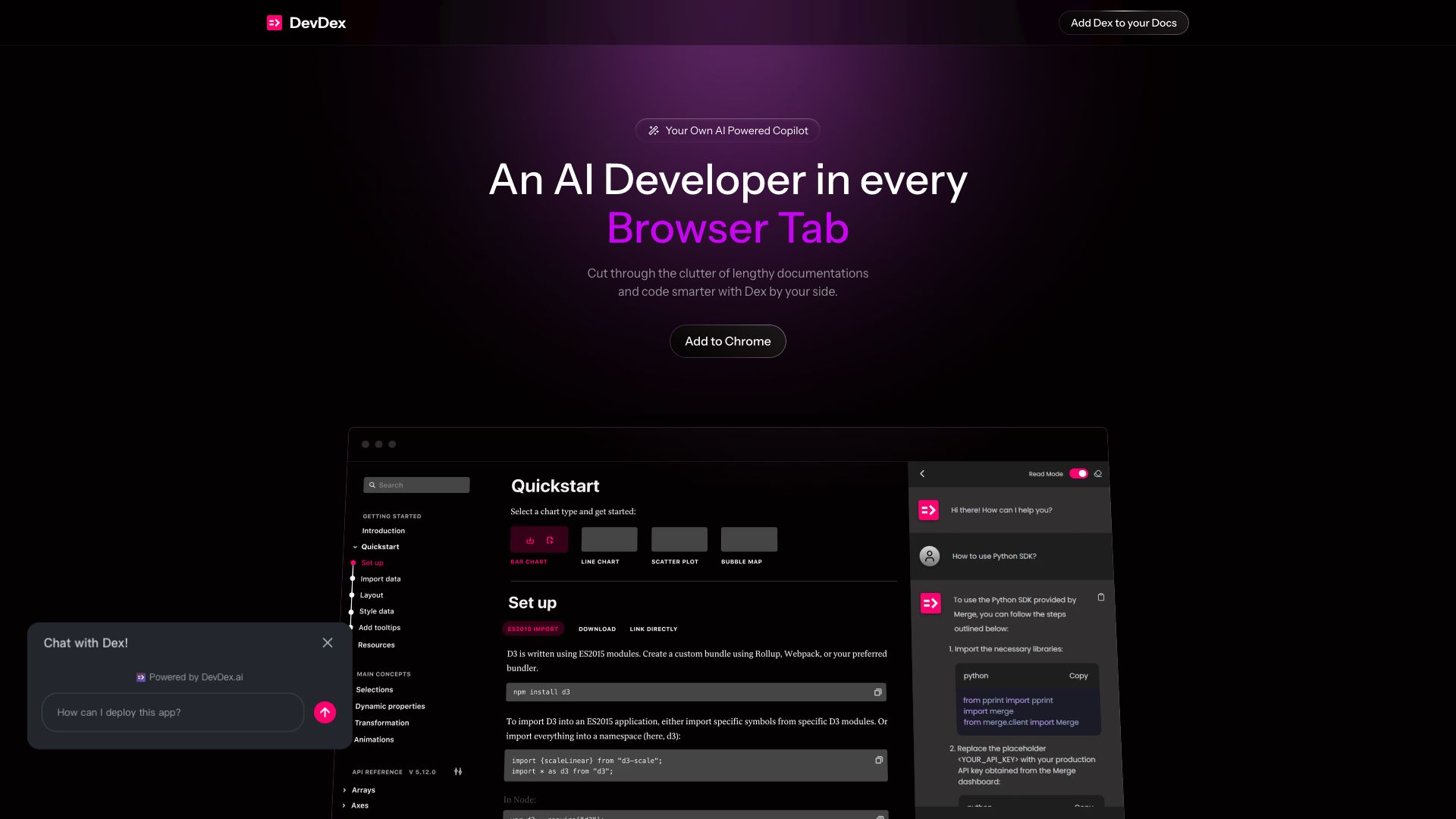Awesome AI Code Refactoring Tools in 2024
Discover the awesome 2 AI tools for 2024 By Candytools
Kabir is a cybersecurity assistant that helps you secure your digital life.
Revolutionizing Developer Documentation with AI-Powered Precision
More AI Tools Categories
What is AI Code Refactoring?
AI code refactoring is the application of artificial intelligence techniques to improve the structure and quality of existing source code without changing its external behavior. Essentially, it's like having an AI-powered assistant help you clean up and optimize your code.
Here's how AI code refactoring works:
-
Understanding the Code: AI models, often based on machine learning, are trained on massive datasets of code to understand programming languages, coding styles, and best practices. They can analyze your code's structure, dependencies, and potential issues.
-
Identifying Refactoring Opportunities: The AI identifies areas where the code can be improved, such as:
- Code Smells: Detecting common coding patterns that indicate potential problems (e.g., long methods, duplicate code, excessive nesting).
- Redundancy: Finding repeated code segments that can be consolidated.
- Complexity: Simplifying overly complex logic or structures.
- Style Inconsistencies: Enforcing consistent coding conventions and style guidelines.
-
Suggesting Refactoring Actions: The AI provides specific recommendations for improving the code. This could involve:
- Extracting Methods: Breaking down long methods into smaller, more manageable functions.
- Introducing Design Patterns: Implementing established design patterns to improve code organization and maintainability.
- Renaming Variables and Methods: Suggesting more descriptive and meaningful names.
- Reorganizing Code Structure: Improving the logical flow and grouping of related elements.
-
Automating Refactoring (In Some Cases): Some advanced tools can automatically perform certain refactoring tasks, like renaming variables or extracting methods, reducing manual effort.
Benefits of AI Code Refactoring:
- Improved Code Quality: Makes code more readable, maintainable, and less prone to errors.
- Increased Efficiency: Automates tedious refactoring tasks, freeing developers to focus on higher-level challenges.
- Consistency: Enforces coding standards across projects, leading to a more unified codebase.
- Reduced Technical Debt: Addressing code quality issues early prevents them from accumulating and becoming harder to fix later.
Examples of Tools & Technologies:
- DeepCode: Uses AI to analyze code and suggest refactoring actions.
- GitHub Copilot: Can provide suggestions for code improvements, including refactoring.
- IntelliJ IDEA: Offers AI-powered code inspection and refactoring capabilities.
Limitations:
- Complex Refactoring: AI might struggle with very complex refactoring scenarios that require deep contextual understanding.
- Understanding Intent: While AI can identify potential issues, it may not always fully grasp the developer's original intent, leading to inappropriate refactoring suggestions in some cases.
The Future: AI code refactoring is still evolving, but it has the potential to revolutionize how we write and maintain software. As AI models become more sophisticated, we can expect even more powerful and intelligent refactoring tools in the future.

